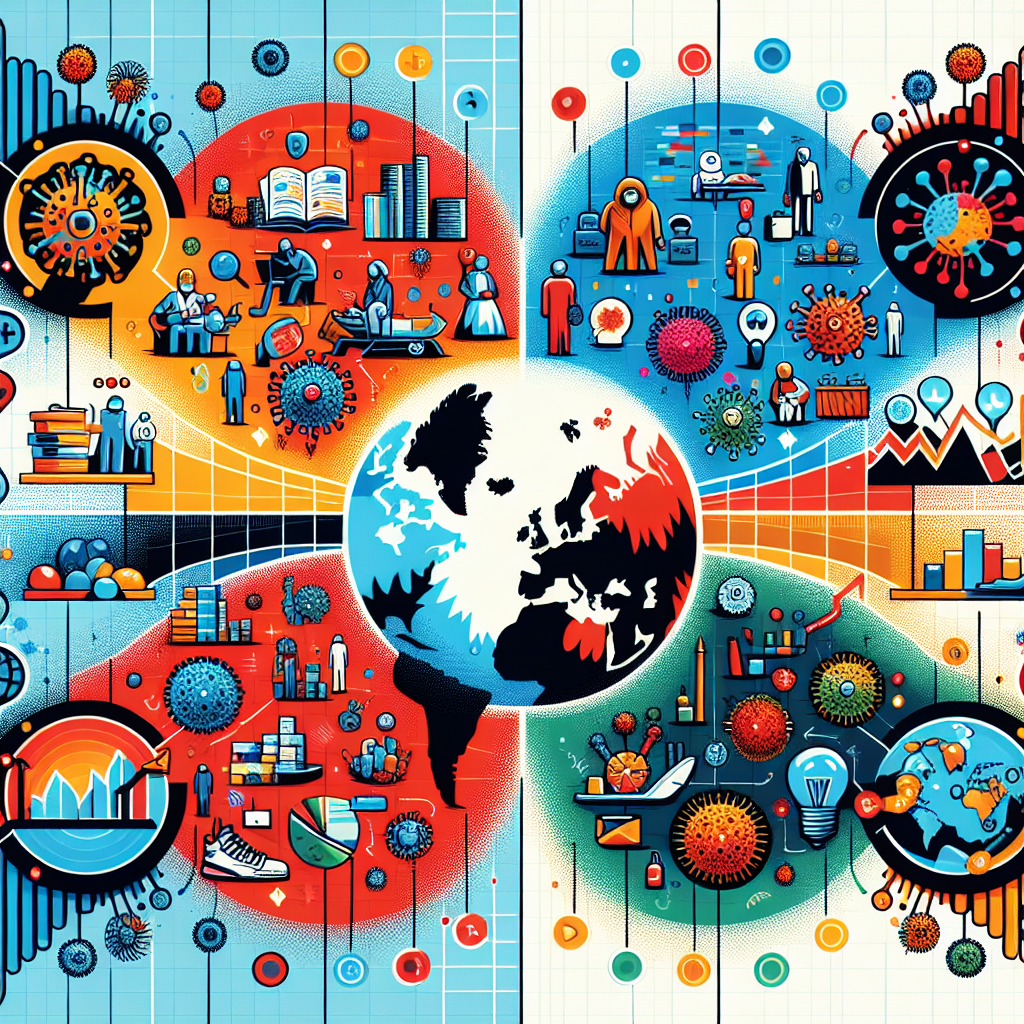Pandemi mengubah dinamika ekonomi global dengan mengakibatkan resesi, penurunan perdagangan internasional, dan perubahan pola konsumsi.
Bagaimana Pandemi Mengubah Dinamika Ekonomi Global?
-
Table of Contents
- Introduction
- The Global Economic Impact of the Pandemic
- The Great Lockdown
- Supply Chain Disruptions
- Decline in International Trade
- The Shift to Digital Economy
- Rise of E-commerce
- Remote Work and Digital Services
- Government Response and Economic Recovery
- Fiscal Stimulus Measures
- Investment in Healthcare and Biotechnology
- Focus on Domestic Consumption
- Conclusion
Introduction

The COVID-19 pandemic has had a profound impact on economies around the world, and Indonesia is no exception. The country, with its large population and diverse economy, has experienced significant changes in its economic dynamics as a result of the pandemic. In this article, we will explore how the pandemic has transformed the global economic landscape and its specific implications for Indonesia.
The Global Economic Impact of the Pandemic
The Great Lockdown
The COVID-19 pandemic triggered a global economic downturn, often referred to as “The Great Lockdown.” Governments around the world implemented strict lockdown measures to contain the spread of the virus, resulting in the closure of businesses, disruptions in supply chains, and a sharp decline in consumer spending. This sudden halt in economic activity led to a global recession, with the International Monetary Fund (IMF) projecting a contraction of 3.5% in the global economy in 2020.
Supply Chain Disruptions
One of the key consequences of the pandemic has been the disruption of global supply chains. Many countries, including Indonesia, heavily rely on imports for various goods and raw materials. The closure of factories and restrictions on international trade have caused severe disruptions in supply chains, leading to shortages of essential goods and increased prices. This has had a significant impact on Indonesia’s economy, as it relies on imports for a wide range of products, including electronics, machinery, and pharmaceuticals.
Decline in International Trade
The pandemic has also resulted in a decline in international trade, as countries imposed travel restrictions and closed their borders. This has affected Indonesia’s export-oriented industries, such as manufacturing and agriculture. The country’s exports have experienced a significant decline, particularly in sectors like textiles, automotive, and palm oil. The decline in international trade has not only affected Indonesia’s economic growth but also its employment rate, as many workers in these industries have lost their jobs.
The Shift to Digital Economy
Rise of E-commerce
One of the notable changes in the global economic dynamics brought about by the pandemic is the rapid growth of e-commerce. With physical stores closed and people confined to their homes, online shopping has become the preferred method of purchasing goods and services. This shift has presented both challenges and opportunities for Indonesia. While the country’s e-commerce sector has experienced significant growth, there are still challenges in terms of logistics infrastructure and digital literacy among the population.
Remote Work and Digital Services
The pandemic has also accelerated the adoption of remote work and digital services. Many companies have shifted to remote work arrangements, relying on digital tools and platforms to ensure business continuity. This has led to increased demand for digital services, such as cloud computing, online collaboration tools, and cybersecurity solutions. In Indonesia, the digital services sector has seen a surge in demand, creating new opportunities for tech startups and digital entrepreneurs.
Government Response and Economic Recovery
Fiscal Stimulus Measures
To mitigate the economic impact of the pandemic, the Indonesian government has implemented various fiscal stimulus measures. These include tax incentives, loan guarantees, and direct cash transfers to affected individuals and businesses. The government has also allocated funds for healthcare infrastructure and social protection programs. These measures aim to support businesses, protect jobs, and stimulate economic recovery.
Investment in Healthcare and Biotechnology
The pandemic has highlighted the importance of healthcare infrastructure and biotechnology research. In response, the Indonesian government has increased its investment in healthcare facilities, medical equipment, and research and development in the biotechnology sector. This investment not only aims to strengthen the country’s healthcare system but also to promote innovation and create new economic opportunities in the healthcare industry.
Focus on Domestic Consumption
The pandemic has underscored the importance of domestic consumption in driving economic growth. With the decline in international trade, the Indonesian government has emphasized the need to boost domestic consumption to stimulate the economy. This includes measures such as cash transfers to low-income households, subsidies for essential goods, and incentives for domestic tourism. By encouraging domestic consumption, the government aims to reduce reliance on external markets and create a more resilient economy.
Conclusion
The COVID-19 pandemic has had a profound impact on the global economy, and Indonesia has not been immune to these changes. The country has experienced disruptions in supply chains, a decline in international trade, and a shift towards a digital economy. However, the Indonesian government has responded with fiscal stimulus measures, investment in healthcare and biotechnology, and a focus on domestic consumption to support economic recovery. As the world continues to navigate the challenges posed by the pandemic, it is crucial for Indonesia to adapt and innovate to ensure long-term economic resilience.







